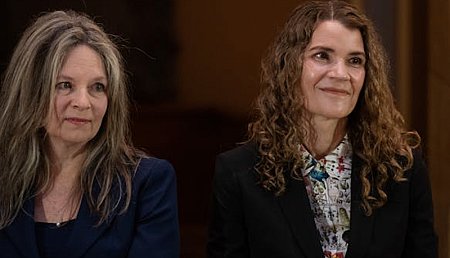 Photo: Visar Kryeziu | AP Photo
Photo: Visar Kryeziu | AP Photo
In the mountains of Eastern Kosovo, 92-year-old Blagica Dicic is the only resident in her remote ethnic Serb village. Before the 1998-'99 war, more than 200 people lived there. It has since been deserted by all other inhabitants, including her two grown sons. But,"I have three sons, not two," Dicic states. "Fadil is the other one, bringing me food and taking care of me." This statement is all the more exceptional because Fadil Rama, 54, who is part of Kosovo's Albanian majority and a Muslim, comes from the other side of Kosovo’s historic bitter ethnic divide. Dicic lives on a 60 euro ($71 US) monthly pension. Since the pandemic hit in March, Rama has been visiting Dicic twice a week, bringing food, cleaning her room and chopping firewood for her. "She has been such a good woman before, during and after the war and has treated us like her children,” he said. “When I learned she remained alone I felt very sorry and thought of paying back her good deeds." Rama remembers how, when he was a child, Dicic would bring candy for all the children in his village of Strezovce, regardless of the fact that they were an ethnic group at war with hers. Dicic and Rama live less than a mile apart. "Belgrade’s or even Pristina’s politics are of no interest to us because we have always supported each other," Rama said.
More:














